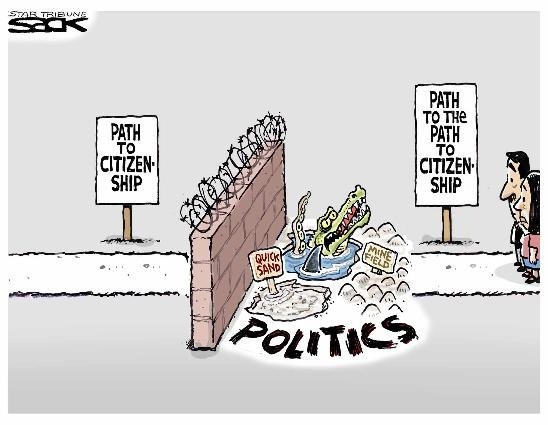
Source
If you are reading this then you likely fall into one of three categories:
You are an immigrant
You are concerned about immigration
You follow me and are simply curious about what I have to say
This is written with all three categories of reader in mind.
And within this post I shall be describing and elaborating upon three main kinds of migration: That which is organic and orderly, that which is en-mass yet managed, and that which is en-mass, artificial and disorderly.

Source
Organic Migration
There used to be a time, when an individual migrated to another country, that s/he would encounter a mix of reactions - primarily curiosity.
S/he was rarely seen to be a threat to that nation's economy, identity or security and for as long as s/he didn't cause any trouble, s/he was generally welcomed into a given community.
The reason why this was so was because the type of immigration taking place was both incremental (organic & natural) as well as legal - or at least regulated.
This is as close to how migration should be as could be.
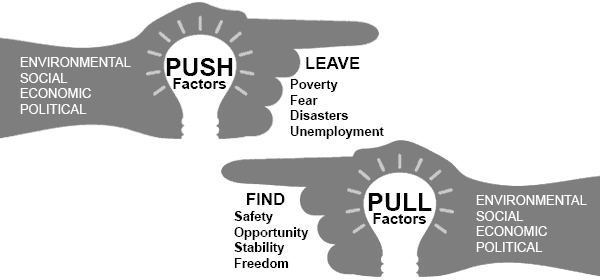
Source
Economic Migration
This category needs to be further divided between that attributed to slavery - and that attributed to commerce.
Slavery
For many centuries, if not millennia, the mass transportation of people for economic reasons - particularly as slaves - was rather common place. Slavery was an accepted part of the socioeconomic paradigm and there were interests vested in ensuring that slaves always knew their place.
The treatment of slaves have varied greatly across continents and eras, with some treated as only loosely subservient "friends", others being treated as servants, and others being made to toil as machines or worse (and of course the spectrum may be filled in-between).

Source
While many areas of the World have since officially abolished slavery - there exist strong remnants of such - whether residually embedded within some cultures and faiths - or in the form of mostly illegal human trade operations.
Commerce
Why a nation would prefer to import a labour force rather than educate or otherwise train its own citizens is open to speculation - although rather sound thinking on the matter is that it is both cheaper and faster to import ready-trained individuals from abroad.
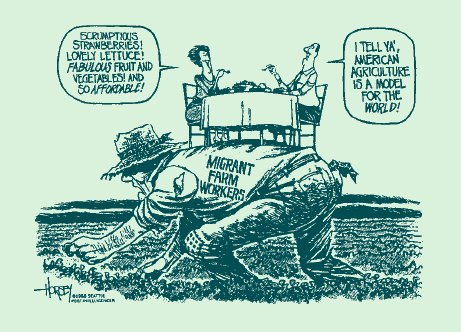
Source
Either way, when certain nations decided it desirable to import large numbers of foreign individuals for economic reasons, the curiosity factor that they were initially met with (as mentioned earlier in this post) was rather quickly supplanted by less positive reactions.
The scale of migration is what triggers the raising of red flags in the minds of citizens - and as the community of migrants take on the roles for which they have migrated, they may be perceived as taking jobs that could have been filled by fellow citizens (that, and unemployment figures have kind of always been a thing - exacerbating the problem).
Furthermore there is a distinct possibility (particularly among migrant groups who do not by default speak the native language) that migrants may gravitate towards each other and form sub-communities for themselves within the community. The more negative examples of these are labelled "ghettos". These locations have a tendency of establishing a manifestation of the migrants' culture - which can be positive but can also set off further flags in the minds of locals.

Source
The kinds of migration mentioned within the this section have been either legal or regulated but have been more artificial in nature. The scale concerned made things less comfortable for local populations as red flags were raised - and the only reason that these flags might not be raised in the former situation is due to the perception and exercise of having leverage of status upon slaves that the local persons had/have.
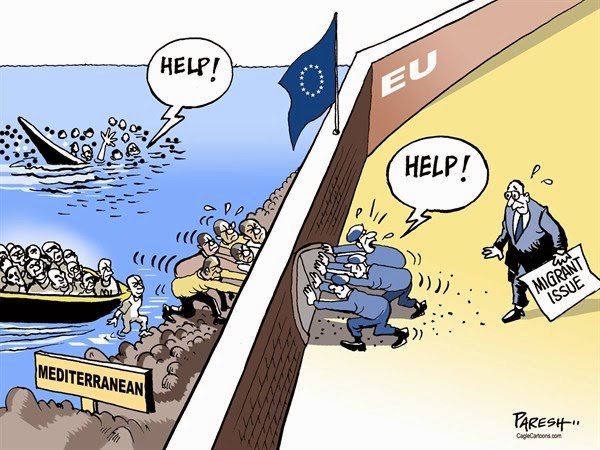
Source
The Migrant Crisis
The patterns of migration that we have witnessed in recent decades have neither (for the most part) been legal/ controlled nor has it been organic.
The chaos that has resulted is very much a present issue, with hundreds of thousands to millions of people displaced each year or so. These are persons who subsequently cross borders en-mass and unregulated. Due to the sheer mass of their numbers as well as the circumstances of their movement - these are inherently insular groups that are also inclined to manifest their ways within their host nations - some more overtly than others.
They gain clandestine employments working for the more opportunistic within the population - while also taxing the nation's social economy and logistics.

Source
From the citizen's perspective - all the flags are raised and alarm bells are ringing - and yet oddly the mechanisms of state seeks to sooth him or her, and even to lay criticism of such negative perspective. Politics can be odd that way - opting to confuse the real issue with 'race'.
However the truth is that the citizen's concerns are not without basis. The migration of this sort that has been taking place has been neither legal or regulated, nor has it been organic. Thus fear results.
Mass artificial migration such flows constitute - being neither organic nor natural in nature.
And the sad truth is that there does undoubtedly exist a class of citizens who actually do benefit from mass flows of migration.
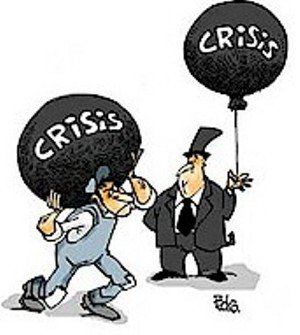
Source
These are the business owners - the employing classes. For these a mass flow of migrants is a boon. They firstly represent a source of customers. More importantly they represent a source of labour - and especially within a context of they're facing impediments to finding work, they are more inclined to 'work for less'.
This in turn has a knock-on effect upon the bargaining power of the legitimate work force. In the eternal tug of war between the employing and employed classes, such immigrants may be compared to new members on the employed persons side actually tugging in favor of employers - simply out of self-interest.
The tug of war shifts in the employers' favour - and citizens find it harder and harder to find decently-paying work while others find that their impending pay-rise is put off indefinitely or that one loses one's job only to find an immigrant in one's place because they simply work for less.
Yes, laws officially work against such practices - but only a minority of cases make it in front of a judge - and thus employers can and do tend their bottom line and their end-of-year bonuses to entrepreneurially exploit whatever they can - while they can.
And connected to the employing classes one often finds the political will of a nation - and this shapes that nation's immigration policy.

Source
In spite of the harsh tone that this segment has finished upon, it is important to clarify that I see mass artificial migration to be a symptom rather than a condition.
This perspective does much to colour my regard of the players involved - and it is my intention to address this subject again in the near-enough future. There remains a fair bit to be said - as well as more criticism to distribute.
In the meantime note that the purpose of elaborating upon the above distinct categories is to remind people that there are various kinds of migration - and that things weren't always like this. That which we accept as the norms of the day can take us dangerously close to complacency - and such does little to solve the problems of this World.
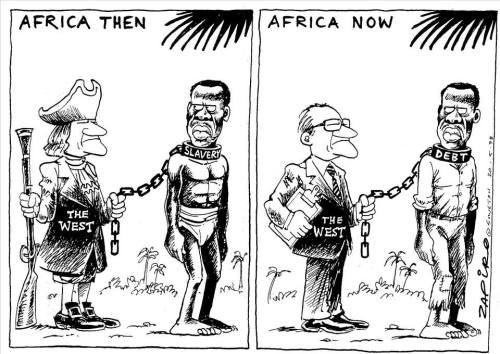
Source
Let us have a chat about this below. Regardless of which side of the topic you find yourself on it'll be interesting to see the expected variety of thoughts - including those that I deliberately do not delve into this time - reserved for another post.
If you found this post interesting and would like to share this with your followers and friends then a resteem is always appreciated.
If you have some feedback for me then feel free to share your views in comments. A civil conversation can go a long way.
Sincerely,

Previous Post: Master Your Anger.
